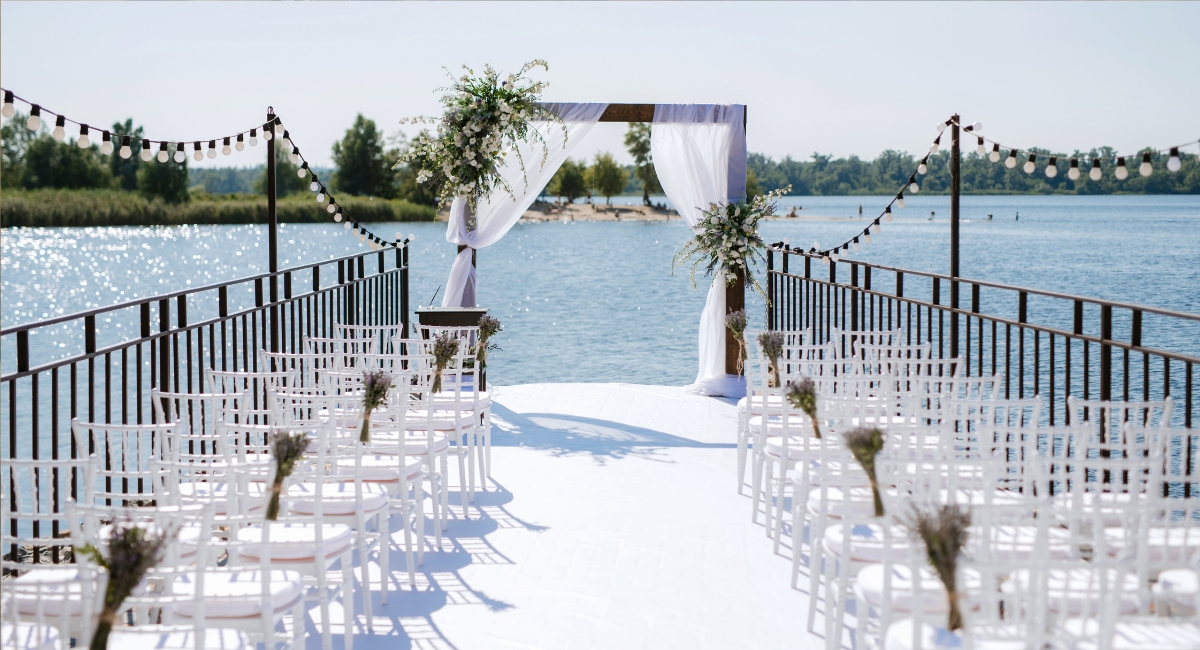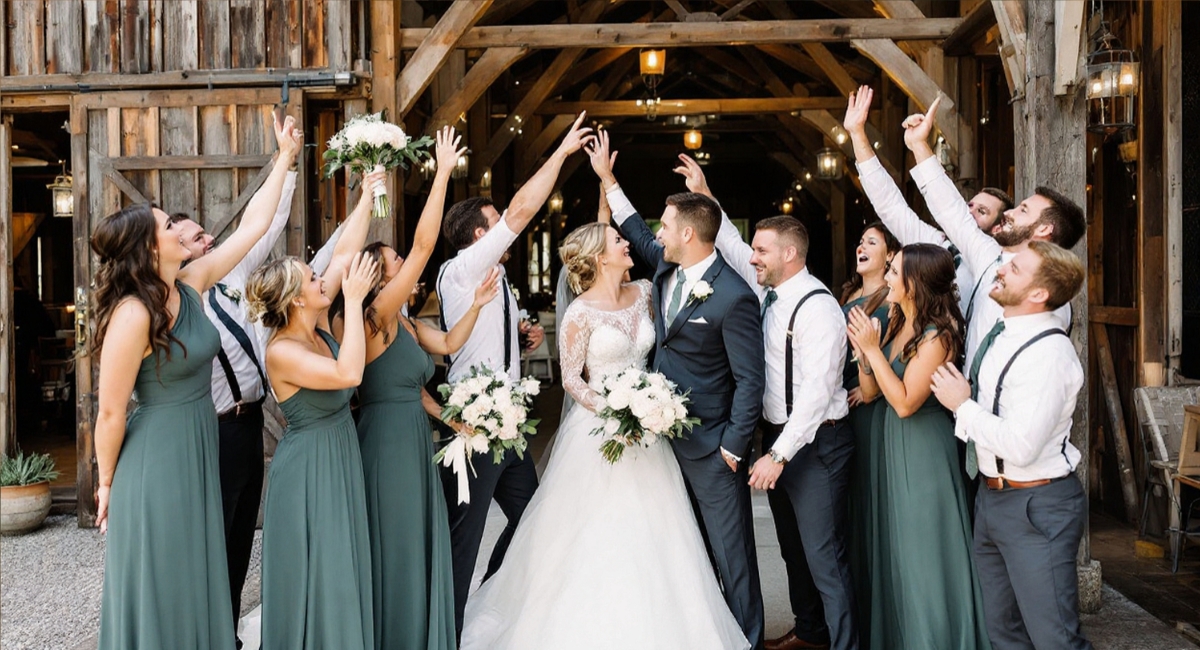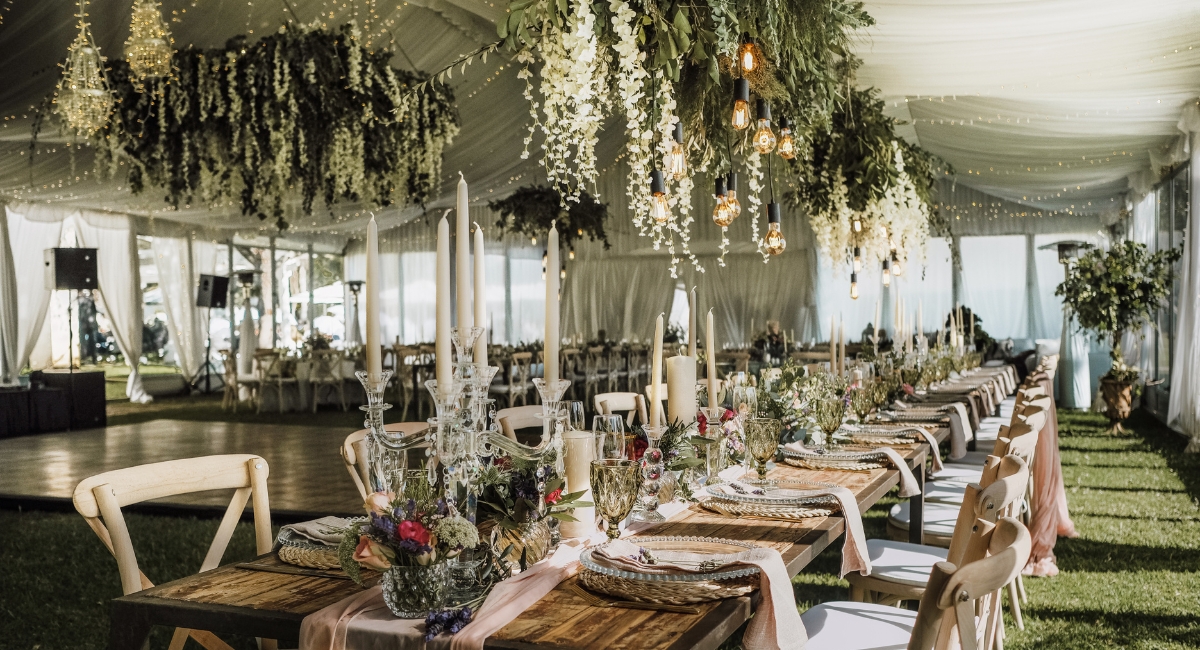How long does it take to plan a wedding? It’s one of the first questions couples ask the moment the engagement ring is on the finger. And for good reason. Between booking the perfect venue, finding vendors you trust, and coordinating all the moving pieces, wedding planning can feel like a full-time job. But here’s the good news: there’s no one-size-fits-all answer.
Whether you’re dreaming of a grand 200-guest celebration or an intimate ceremony by the lake, your planning timeline should reflect your priorities, lifestyle, and vision. This guide breaks down the average timelines, key factors, month-by-month tasks, and smart tips to help you navigate the process with clarity and confidence.
Average Wedding Planning Timelines
Most couples spend between 12 to 14 months planning their wedding, and for many, this window offers a comfortable pace. But timelines can vary—sometimes drastically.
12 to 14 Months: The Standard Timeline
This is the most common timeframe for planning a traditional wedding with all the trimmings. It gives you time to book your ideal venue and vendors, space out payments, and make thoughtful decisions without feeling rushed.
6 to 9 Months: The Condensed Timeline
A shorter planning window is absolutely doable, especially if you’re flexible with your venue or open to off-season dates. It requires decisiveness and quick action—especially with vendor availability—but many couples pull it off beautifully.
18 to 24 Months: The Extended Timeline
Some couples prefer to take their time. Whether it’s due to work, studies, long-distance logistics, or simply enjoying the engagement period, a longer runway offers breathing room. Just be mindful: too much time can sometimes lead to decision fatigue or second-guessing.
Factors That Influence Your Planning Timeline
The duration you’ll need really depends on a mix of personal, logistical, and seasonal considerations.
Venue Availability
Popular venues, especially those with historic charm or scenic views, often book out 12–18 months in advance. If you have your heart set on a specific location, like Lumen Hall in Coeur d’Alene, it’s smart to reach out as early as possible to secure your preferred date.
Guest List Size
The more guests you invite, the more logistics you’ll have to manage—seating, catering, accommodations, transportation. A large wedding simply takes more time to coordinate.
Seasonality
Spring and fall are peak wedding seasons. Planning a wedding during these high-demand months means securing vendors early. If you’re planning a winter or weekday celebration, you may find more flexibility and availability.
Destination Weddings
Planning a wedding away from home? Add extra time. Travel logistics, local laws, accommodation coordination, and time zone differences can slow things down.
Your Personal Schedule
Are you juggling grad school, a big work project, or moving homes? Be realistic about how much time and energy you can dedicate to planning, and adjust your timeline accordingly.
Month-by-Month Wedding Planning Timeline
If you’re starting from scratch with 12 months to go, here’s a basic breakdown to help you stay on track.
12+ Months Before
- Set your budget.
- Draft a guest list.
- Choose and book your venue.
- Hire a wedding planner (if desired).
- Choose your wedding date.
9–11 Months Before
- Book key vendors: photographer, caterer, entertainment.
- Start dress shopping.
- Design your wedding website and send save-the-dates.
6–8 Months Before
- Order wedding invitations.
- Finalize attire for wedding party.
- Plan honeymoon.
- Secure hotel blocks and guest accommodations.
3–5 Months Before
- Finalize menu and floral arrangements.
- Buy wedding bands.
- Schedule fittings and beauty appointments.
- Arrange transportation for the day.
1–2 Months Before
- Mail out invitations.
- Obtain your marriage license.
- Confirm details with vendors.
- Write vows and speeches.
Week of the Wedding
- Finalize seating chart.
- Pack for honeymoon.
- Attend final dress/suit fittings.
- Do a venue walkthrough and confirm timeline.
Tips for Planning Efficiently—No Matter Your Timeline
Whether you’re working with a year or just a few months, staying organized and making confident choices will make all the difference.
-
Prioritize High-Impact Decisions
Book the venue, caterer, and photographer first. These vendors often get booked early, and they shape the entire tone of your event.
-
Use Planning Tools
From spreadsheets to wedding planning apps, having a central system to track tasks, payments, and contacts will save you stress.
-
Delegate Wisely
You don’t have to do everything yourself. Let trusted friends or family take on manageable tasks—like vendor follow-ups, favor assembly, or transportation coordination.
-
Be Flexible
If your ideal vendor isn’t available, ask for recommendations or consider weekday dates. Flexibility can open up great options you hadn’t considered.
-
Consider a Wedding Planner
Planners can cut your decision-making time in half. They know vendors, timelines, and how to navigate unexpected snags—plus, they’re pros at keeping your vision on track.
Your Timeline, Your Wedding
There’s no perfect answer to how long it takes to plan a wedding—because every couple is different. What matters most is making decisions that feel right for you, staying organized, and focusing on what really counts: a joyful, love-filled celebration.
At Lumen Hall, planning becomes easier thanks to the hands-on support of their experienced event staff. From helping you create a vision to handling the smallest details, their team is committed to making your day unique, beautiful, and stress-free. So whether you have 6 months or 16, you’ll find trusted support every step of the way.
With thoughtful preparation, a clear plan, and a little help from the right people, your dream day is not just possible—it’s entirely within reach.








